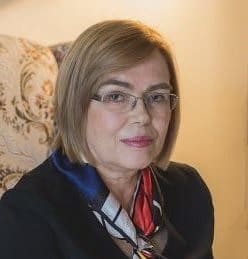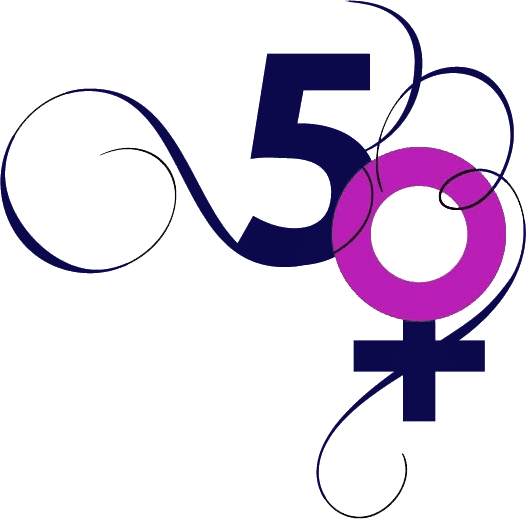

Maciej Kucharczyk, AGE Platform (MK):
Hanna, what does being a European mean to you?
Hanna Nowakowska, JA KOBIETA (HN):
‘First of all, as a European I am able to travel freely everywhere in the European Union. It’s so easy today to explore and admire the beauty of individual European countries, know better their cultures, history and, above all, their people. You know it hasn’t always been this way… As a vice President of the International Committee of Ravensbrück – ICR(**) I meet wonderful mature women, my peers from many countries. The ICR commemorates and represents the wishes of the survivors of the Ravensbrück camp and their families. Ravensbrück was the largest concentration camp for women in the German Reich. My grandmother and mother were both prisoners in Ravensbrück. So my engagement for Europe builds on our family’s single story. Every meeting and conversation with women who survived Ravensbrück is a new experience and new piece of information… In short, for me being European means reconciliation with the past, and also new opportunities, activities, ideas and projects in which I can engage with other Europeans.’
MK: More specifically, what is the added value of the European Union in your daily life?
HN: ‘I think it brings me a broader view of the world and our place in it as Europeans… having many great friends in different corners of Europe, the ability to communicate on a daily basis, getting to know their opinions, discussing and understanding them better. The EU creates connections and facilitates dialogue between all of us… I gain new historical knowledge by meeting ICR members from so many countries. I read more about history, I am interested in learning about various points of view, and I want to know even more. Since Poland joined the EU I discovered new fascinating books, films, music, poems. For example, now I can easily listen to music created by the great Spanish singer Marina Rossell or the pianist Carsten Dahl from Germany.’
MK: In your activities you often pay attention to intergenerational dialogue. Why? Are there any particular values, traditions or knowledge that you would like to convey to your own children and grandchildren?
HN: ‘I would like to tell all young people, not only mine, how fascinating history is and why it is worthy to meet with the Witnesses of the History. Thanks to meetings with former prisoners of the Ravensbrück camp, young people learn not only what happened in the past but also how to become more resilient by learning from these fascinating older women how they managed to survive and then to move ahead with their life in a positive way. They all were extremely brave and strong – although only very few still live – and gave great exemplary testimony of humanity. Through their actions and attitudes during the most difficult time, they showed that everyone can remain human and support each other. For today’s kids and youth who are sometimes lost or stressed, the testimonies of the former prisoners can be empowering and serve as inspiration. In the camp, these brave women fought for their survival, human dignity, femininity, while in the post-war days they managed to rebuild their lives for the benefit of their families and compatriots. They also knew that to survive they should forgive and look ahead beyond the atrocities they went through. They teach us why it’s important to care for each other, how to enjoy each day, how to get on with your life, remembering those who have already left.
It is worth seizing any opportunity to draw lessons from the experience of older close relatives or friends. My mission is to ensure that their efforts and sacrifices will be neither forgotten, nor wasted because it is an essential part of the EU cultural heritage.’
MK: Looking into future, what do you think should be improved to build a stronger and sustainable European Union?
HN: ‘I believe that the most important is integration and cooperation. I prefer to look at what unifies us rather than what separates us. This is what I learned from my mother and grand-mother. And I think it is worth trying to look for consensus, to see where Europeans can act together.’
Warsaw, July 2018
– – – – –

Today JA KOBIETA’s engagement is being pursued through new actions and initiatives in the fields of human social policies and cross-border cooperation. In cooperation with the Polish section of the ICR they recently implemented a project ‘Strength and Hope’. Through informal meetings and debates gathering Ravensbrück camp’s survivals with young women and girls, as well as by publishing a comic strip dedicated to these brave women’s life in the camp, the project raised awareness about the war history. But above all the project tries to empower the younger generation to overcome daily challenges and difficulties, to be more resilient against vicissitudes of destiny and eventually to fully enjoy life. JA KOBIETA is also part of an informal coalition of organisations of older persons and/or working from them, Forum 50+, Seniors of the 21st century. At present, the coalition consists of 22 non-governmental organizations from all over Poland. For more information about JA KOBIETA, please see: https://www.kobieta50plus.pl/
View a portrait of JA KOBIETA on AGE website
(**) In June 2018, Hanna Nowakowska was elected Vice President of the International Committee of Ravensbrück (ICR). In this new role, Ms Nowakowska represents the Committee’s members from across Europe including Austria, the Czech Republic, France, Germany, Italy, Poland, Russia, Spain and Ukraine. Her personal objective is to strengthen cross-border and intergenerational bridges in memory of all the brave women whose common destiny passed by the Ravensbrück concentration camp to help younger generations of women build a better future for all. To learn more about the history of the camp and activities of the International Committee of Ravensbrück, please see: https://www.ravensbrueck.de/mgr/index.html and https://www.ravensbruck.pl/






